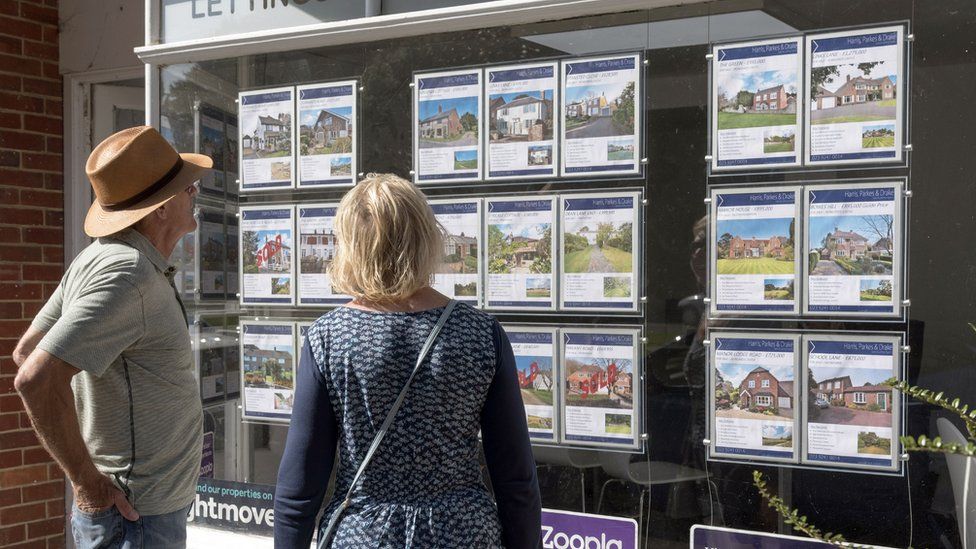
House prices fell by 5.3% in August compared with the year before, their biggest annual decline since 2009, according to Nationwide.
The building society said the drop represented a fall of £14,600 on a typical home in the UK since house prices peaked in August 2022.
It said higher borrowing costs for buyers had led to a slowdown in activity in the housing market.
Mortgage approvals have also been about 20% below average levels in 2019.
Since December 2021, the Bank of England has raised interest rates 14 times in row in a bid to clamp down on rising consumer prices in the UK. The bank’s base rate now stands at 5.25%.
That, in turn, has led to lenders raising their mortgage rates, putting increased pressure on homebuyers.
Nationwide’s chief economist Robert Gardner said the rise in the cost of borrowing meant the fall in average house prices was “not surprising”.
He told the BBC’s Today programme that affordability for house was “much more stretched than it was before” pointing to a typical rate now being towards 6% compared to 1.5% in late 2021.
“Clearly that has had a big impact on the market as a whole,” he added. “I think it is going to take time for things to pick up at all.”
According to financial information service Moneyfacts, the average two-year fixed mortgage rate on Friday was 6.7%, while the average five-year fix was 6.19%.
Average house prices in the UK peaked at £273,751 in August 2022 but fell to £259,153 last month.
While the drop is the biggest since 2009, property prices are still much higher than they were in August 2021 when the average was £248,857.
Mr Gardener said there had been a “modest shift” in the type of properties being purchased among buyers who needed a mortgage in recent times.
“While transactions are lower than pre-pandemic levels across all property types, the biggest decline has been in detached houses,” he said.
Mr Gardner said there signs buyers were looking towards “smaller, less expensive properties, with flats seeing a smaller decline”.
Flats have remained “relatively more affordable”, he added. The price of detached properties had risen by 23% since the start of the Covid pandemic in 2020, while the price of flats had gone up by 13%.
According to Nationwide, mortgage completions in the first half of 2023 were 33% lower than in 2019.
The number of first-time buyers is down 25% compared to pre-pandemic levels, with buy-to-let purchases down 30%.
In contrast, cash deals are up 2%.
The lender said a first-time buyer “earning the average wage and buying a typical first-time buyer property with a 20% deposit” would now see their monthly mortgage payment “absorb over 40% of their take-home pay”.
Mr Gardner said while activity in the housing market would likely remain subdued in near term, increases in earnings together with lower house prices “should help improve housing affordability over time, especially if mortgage rates moderate once [interest rates] peak”.
Nationwide is one of the country’s biggest mortgage lenders. Its house price index is calculated based on owner-occupier property purchases involving mortgages only. Its figures do not include buy to let or cash purchases.
The lender gathers its house price information from its mortgage applications on a monthly basis.
Related Topics
- Nationwide Building Society
- Personal finance
- Housing market
- Inflation
- Cost of living
- UK economy





